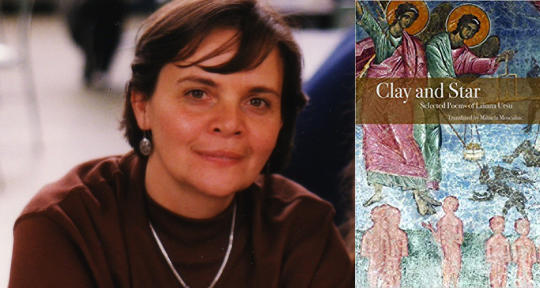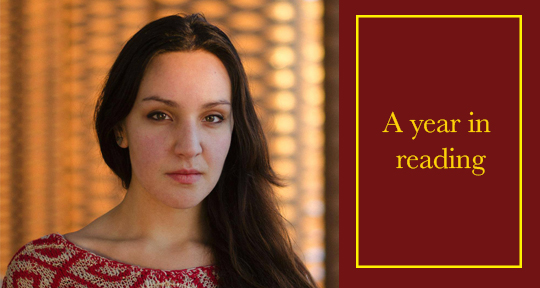This week, allow our editors-at-large to take you around the world to find out about the most exciting literary news. From Hong Kong, the highly anticipated 21st Hong Kong International Literary Festival has announced its first slate of writers. New lyric dispatches allow us to hear from a variety of voices from Palestine. Finally, fellowships and festivals from India are worth your attention. Read on to learn more!
Jacqueline Leung, Editor-at-Large, reporting from Hong Kong:
After a two-year-long hiatus with its main website, Cha, Hong Kong’s popular English literary journal, is open for submissions again from July for their Auditory Cortex 2021 special feature. Co-edited by Lian-Hee Wee and Tammy Lai-Ming Ho, the issue accepts poetry written in various Englishes, acknowledging the diversity of the language across multiple territories. The auditory cortex is the first point in the brain reacting to sound, and as such the publication is looking to document the acoustics of lesser known varieties through a series of recordings accompanying the texts. Cha is also calling for abstracts for the Backreading Hong Kong’s 2021 academic symposium, “Translating Hong Kong,” with Hong Kong Baptist University and The University of Toronto Scarborough this December. In addition to new insights into translation practice, the symposium hopes to explore the cultural and linguistic implications of interpreting works about Hong Kong, whether translation reiterates the colonial dominance of English and how it feeds into the city’s culture.
Back for its 21st year, the Hong Kong International Literary Festival just announced its initial line-up of writers and speakers. Held between November 5 to 15, this year’s festival is entitled the Rebound Edition and will focus on themes of resilience, recovery, and mental health. It has so far confirmed the appearance of Amor Towles, Paula Hawkins, Damon Galgut, and Mary Jean Chan, as well as local emerging writers Alice Chan, Virginia Ng, and Angus Lee, with more details to be announced in late September.
Beyond the page—and my usual reportage of Chinese-English translation happenings—Asia Society Hong Kong Center is hosting a series of six screenings and talks of Korean films with English subtitles between now and December. Titled “Beyond K-pop: Korean Families in Films,” the program features new and classic hits including Bong Joon-ho’s Parasite (2019), Ode to My Father (2014), and Minari (2021) which won the BAFTA Award for Best Film Not in the English Language. The films offer portrayals of Korean families in different eras and social contexts, addressing issues of historical strife, separation, and immigration. READ MORE…





Radical Reading: Sara Salem Interviewed by MK Harb
I’ve increasingly thought more about what generous, kind, and vulnerable reading might look like instead.
At the height of the pandemic, I—like so many of us—looked for new sources of intrigue and intellectual pleasure. This manifested in finding Sara Salem’s research and reading practice, Radical Reading, which was a discovery of sheer joy; Salem views books and authors as companions, each with their own offerings of certain wisdom or radical thought. When she shares these authors, she carries a genuine enthusiasm that they might come with some revelation.
I interviewed Salem as she sat in her cozy apartment in London wrapping up a semester of teaching at the London School of Economics. We discussed our lockdown anxieties and our experiences with gloomy weather until we arrived at the perennial topic: the art of reading. The interview continued through a series of emails and transformed into a beautiful constellation of authors, novelists, and activists. In what follows, Salem walks us through the many acts of reading—from discussing Angela Davis in Egypt to radicalizing publications in her own work, in addition to recommending her own selections of radical literature from the Arab world.
MK Harb (MKH): Reading is political, pleasurable, and daring. Inevitably, reading is engaged in meaning-making. How did you arrive at Radical Reading as a practice?
Sara Salem (SS): Some of my most vivid childhood memories are of spending long afternoons at home reading novels, and when I think back to those novels, I find it striking that so many of them were English literature classics. I especially remember spending so much time reading about the English countryside—to the extent that today, when I am there, or passing it on a train, I get the uncanny feeling that it’s a place I know intimately. Later, when I read Edward Said’s writing on Jane Austen and English literature more broadly—its elision, erasure, and at times open support of empire—it struck me that we can often read in ways that are completely disconnected from the lives we live. This tension was what first opened up entire new areas of reading that completely changed my life, among which was the history of empire across Africa; at the time I was living in Zambia, where I grew up, and often visited Egypt. Critical history books were probably my first introduction to what you call the practice of radical reading, of unsettling everything you know and have been taught in ways that begin to build an entirely different world.
I like that you say reading is engaged in meaning-making, because it has always been the primary way in which I try to make sense of something. Even more recently, as I’ve struggled with anxiety, reading above all became my way of grappling with what I was experiencing: what was the history of anxiety, how have different people understood it, and how have people lived with it? I realise, of course, that not everything can be learned from a book, but so far, I’ve found that what reading does provide is a window into the lives of people who might be experiencing something you are, making you feel less alone.
MKH: How do you reconcile reading for pleasure versus reading for academic and political insights? Do they intersect? Being idle has its own spatial practice of radicality at times, and I’m curious on how you navigate those constellations.
SS: This question really made me think! In my own life, I have always made the distinction of fiction as pleasure and non-fiction as academic/work-related. So, if I need to relax, or want to take some time off, I will instinctively reach for fiction, and if I want to start a new project, I think of which academic texts would be helpful. However, this began to change about five or six years ago, when I began to think more carefully about how fiction speaks to academic writing and research, as well as how non-fiction—unrelated to my own work—can be a great source of pleasure and relaxation. This has meant that they have begun to intersect much more, and it has enriched both my academic work and my leisure time. READ MORE…
Contributor:- MK Harb
; Language: - Arabic
; Places: - Egypt
, - Zambia
; Writers: - Ahdaf Soueif
, - Arwa Salih
, - Huda Tayob
, - Mahmoud Darwish
, - Sonallah Ibrahim
, - Thandi Loewenson
, - Waguih Ghali
; Tags: - intersectional feminism
, - migration
, - Race
, - radicalism
, - Reading
, - sexuality
, - social commentary